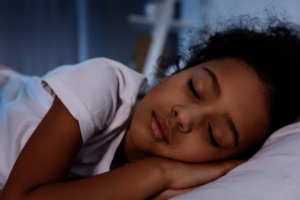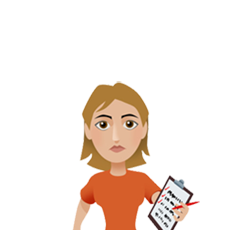It All Starts with Sleep

Somehow it's still amazing to me how often I wind up talking about the importance of sleep with my clients. It all starts with sleep. (Maybe I'm a slow learner.) But I shouldn't be surprised since we know well that people with ADHD tend to have problems with sleep, which tend to:
• make us more irritable,
• reduce working memory,
• negatively impact memory and learning, and
• reduce complex thinking.
Fortunately, a few good nights of sleep will fix all this. Unfortunately, too many people with ADHD are chronically sleep-deprived, so they rarely catch up. It's probably also safe to say that many parents of kids with ADHD get less sleep than they need, making it that much harder to provide the patience and consistency that kids with ADHD need.
ADHD Makes Sleep Harder
ADHD can have both direct and indirect effects on sleep.
Direct effects involve things like the tendency of people with ADHD to have a hard time winding down enough to actually get into bed (and stay there) and then drift off into sleep. Lying in the dark is boring, and the mind keeps moving. They may also meander around more on their journey into bed, so they get into bed later than they should.
Indirect effects involve things such as procrastinating on homework that puts them into bed later. It also seems that people with ADHD are more likely to be night owls, so they simply don't feel tired early enough to get a full night's sleep before the alarm goes off. This is especially true for high school students with painfully early school start times. So, even if they are tired earlier in the day, they get a second wind in the evening.
Article continues below...
Want to Motivate Kids?
Download a free tipsheet "The Parent's Guide to Motivating Your Complex Kid" to help your child find the motivation to do... anything and everything!
Starting with Sleep: 5 Tricks to Get Better
Getting good sleep takes some effort, like with most things in life, but there are some things you can do to make it easier. Even if you're not perfect, partial progress can make a noticeable difference in your daytime functioning.
- Have a consistent bedtime. Even (especially) if your child does not have a built-in sleep clock that causes them to feel tired at the right time of night, most people do better with a consistent bedtime and wake-up time. Unfortunately, this means every day, including weekends. Staying up late and sleeping in really late on weekends can completely disrupt that consistency. Yes, it allows them to catch up from the prior week, but it sets them up for trouble in the coming week. Sleeping in an hour or two on the weekends may be OK, but it shouldn't be more than that, especially if the child clearly has trouble falling asleep on time on Sunday night.
- Have a consistent routine. Even older kids and adults benefit from a consistent routine that is followed at the end of the evening. This should include calming activities and avoid things that are too exciting in the last hour, like blasting away on a video game. Find other activities that wind things down.
- No technology in the bedroom. Cell phones, tablets, computers, and TVs can keep tiredness away by keeping us interested and stimulated. It's also too easy to lose track of time, so “just a few more minutes” becomes an hour. There is also some evidence that tablets and computer screens held within arm's reach put too much blue light into our eyes which interferes with melatonin production and can make it harder to fall asleep. The only exception here might be having soft music on if it actually helps with falling asleep.
- Plan the night better. This is easy to say, but to the extent that it's possible, try to ensure that everything is completed early enough so your child can go to bed on time. If your child takes stimulant medication, it's important to remember that it will probably be mostly worn off by nighttime, so they will get their homework done quicker and better if they do it earlier in the afternoon or evening while the medication is still effective.
- Try a sound machine. Some people with ADHD have trouble turning off their brains enough to drift off to sleep. Sometimes a sound machine can provide enough external stimulation to reduce some of that internal stimulation-seeking. You can use white noise or more interesting options like crashing waves, babbling brooks, chirping crickets, etc. It may also be that it works best to switch it up occasionally to keep it interesting. Some models even come with a sleep timer that automatically turns it off
It all starts with sleep. Getting more sleep is an obvious suggestion, but it takes hard work to make it happen reliably. The reward for the effort is that the day will go more smoothly, your ADHD-friendly strategies will work better, and medication will be more effective.
PARENT SUCCESS = KID SUCCESS


